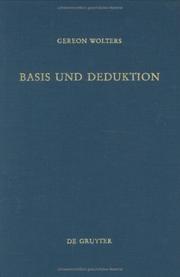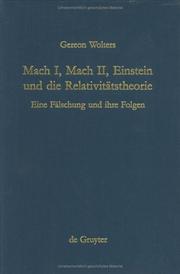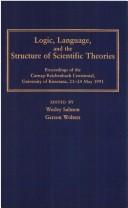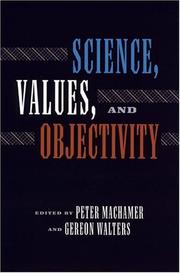| Listing 1 - 10 of 27 | << page >> |
Sort by
|

ISBN: 3110079321 3110864010 9783110079326 Year: 1980 Volume: 15 Publisher: Berlin: de Gruyter,
Abstract | Keywords | Export | Availability | Bookmark
 Loading...
Loading...Choose an application
- Reference Manager
- EndNote
- RefWorks (Direct export to RefWorks)
Keine ausführliche Beschreibung für "Basis und Deduktion" verfügbar.
Lambert, Johann Heinrich, --- Axioms --- Parallels (Geometry) --- Lambert, Johann Heinrich --- Methodology. --- Axioms. --- Logic. --- Logic --- Methodology --- Argumentation --- Deduction (Logic) --- Deductive logic --- Dialectic (Logic) --- Logic, Deductive --- Philosophy --- Lambert, Jean-Henri, --- Lambert, I. H., --- Lambert, J.-H. --- Lambert, --- Research --- Intellect --- Psychology --- Science --- Reasoning --- Thought and thinking --- Geometry --- Mathematics --- Foundations --- Humanities Methodology --- Lambert, Johann Heinrich, - 1728-1777.

ISBN: 3110108259 3110846969 Year: 1987 Publisher: Berlin de Gruyter
Abstract | Keywords | Export | Availability | Bookmark
 Loading...
Loading...Choose an application
- Reference Manager
- EndNote
- RefWorks (Direct export to RefWorks)
Mach, Ernst --- Fraud in science --- Relativity (Physics) --- Scientific fraud --- Science --- History --- Einstein, Albert, --- Mach, Ernst, --- Ma-ho, En-ssu-tʻe, --- Makh, Ėrnst, --- Einstein, Albert --- Fraud in science. --- History. --- Aiyinsitan, Abote, --- Aĭnshtaĭn, Albert, --- Ainshutain, A, --- Ain̲sṭain̲, Ālparṭ, --- Ainsṭāina, Albarṭa, --- Ajnštajn, Albert, --- Āynishtayn, --- Aynshtayn, Albert, --- Eĭnshteĭn, Alʹbert, --- אינשטין, אלברט, --- איינשטיין --- איינשטיין, אלבערט, --- איינשטיין, אלברט --- איינשטיין, אלברט, --- Aynştayn, Elbêrt, --- Īnshtīn, --- Aynîştayn, --- Aiyinsitan, --- 愛因斯坦, --- 爱因斯坦,
Digital
ISBN: 9783110846966 9783110108255 Year: 2011 Publisher: Berlin ;; Boston De Gruyter
Abstract | Keywords | Export | Availability | Bookmark
 Loading...
Loading...Choose an application
- Reference Manager
- EndNote
- RefWorks (Direct export to RefWorks)
Digital
ISBN: 9783110864014 9783110079326 Year: 2011 Publisher: Berlin ;; Boston De Gruyter
Abstract | Keywords | Export | Availability | Bookmark
 Loading...
Loading...Choose an application
- Reference Manager
- EndNote
- RefWorks (Direct export to RefWorks)
Book
ISBN: 3030658244 3030658236 Year: 2021 Publisher: Cham : Springer International Publishing : Imprint: Springer,
Abstract | Keywords | Export | Availability | Bookmark
 Loading...
Loading...Choose an application
- Reference Manager
- EndNote
- RefWorks (Direct export to RefWorks)
This open access book examines the many contributions of Paul Lorenzen, an outstanding philosopher from the latter half of the 20th century. It features papers focused on integrating Lorenzen's original approach into the history of logic and mathematics. The papers also explore how practitioners can implement Lorenzen’s systematical ideas in today’s debates on proof-theoretic semantics, databank management, and stochastics. Coverage details key contributions of Lorenzen to constructive mathematics, Lorenzen’s work on lattice-groups and divisibility theory, and modern set theory and Lorenzen’s critique of actual infinity. The contributors also look at the main problem of Grundlagenforschung and Lorenzen’s consistency proof and Hilbert’s larger program. In addition, the papers offer a constructive examination of a Russell-style Ramified Type Theory and a way out of the circularity puzzle within the operative justification of logic and mathematics. Paul Lorenzen's name is associated with the Erlangen School of Methodical Constructivism, of which the approach in linguistic philosophy and philosophy of science determined philosophical discussions especially in Germany in the 1960s and 1970s. This volume features 10 papers from a meeting that took place at the University of Konstanz.
Philosophy of mathematics --- History of mathematics --- Mathematical foundations --- Lorenzen on Constructive Mathematics --- Application to Constructive Measure Theory --- Lorenzeṇ’s Work on Lattice-groups and Divisibility Theory --- Krull’s Fundamentalsatz for Integral Domains --- Modern Set Theory and Lorenzen’s Critique of Actual Infinity --- Grundlagenforschung --- Lorenzen’s Consistency Proof and Hilbert’s Larger Programme --- Lorenzen's Dialogue Game --- Game Semantics for Substructural Logics --- Constructive Examination of a Russell-style Ramified Type Theory --- Operative Justification of Logic and Mathematics --- Lorenzen on Proof-theoretic Semantics --- Lorenzen on Databank Management --- Lorenzen on Stochastics --- Russell-style Ramified Type Theory --- Lorenzen and Erlangen School of Methodical Constructivism --- Mathematics --- Mathematics. --- History. --- Mathematical logic. --- Philosophy of Mathematics. --- History of Mathematical Sciences. --- Mathematical Logic and Foundations. --- Philosophy. --- Algebra of logic --- Logic, Universal --- Mathematical logic --- Symbolic and mathematical logic --- Symbolic logic --- Algebra, Abstract --- Metamathematics --- Set theory --- Syllogism --- Math --- Science --- Logic of mathematics --- Mathematics, Logic of

ISBN: 0822937409 Year: 1994 Publisher: Pittsburgh University of Pittsburgh
Abstract | Keywords | Export | Availability | Bookmark
 Loading...
Loading...Choose an application
- Reference Manager
- EndNote
- RefWorks (Direct export to RefWorks)
Book
ISBN: 0822977567 9780822977568 9780822943921 0822943921 Year: 2010 Publisher: Pittsburgh, Pa.
Abstract | Keywords | Export | Availability | Bookmark
 Loading...
Loading...Choose an application
- Reference Manager
- EndNote
- RefWorks (Direct export to RefWorks)

ISBN: 0822970864 9780822970866 0822942372 9780822942375 082295947X 9780822959472 Year: 2004 Publisher: Pittsburgh, Pa.
Abstract | Keywords | Export | Availability | Bookmark
 Loading...
Loading...Choose an application
- Reference Manager
- EndNote
- RefWorks (Direct export to RefWorks)
"As Science, Values, and Objectivity reveals, the connections and interactions between values and science are quite complex. The essays in this volume identify the crucial values that play a role in science, distinguish some of the criteria that can be used for value identification, and elaborate the conditions for warranting certain values as necessary or central to the very activity of scientific research."--Jacket
Science --- Normal science --- Philosophy of science --- Philosophy.
Book
ISBN: 3030582515 3030582507 Year: 2021 Publisher: Cham : Springer International Publishing : Imprint: Springer,
Abstract | Keywords | Export | Availability | Bookmark
 Loading...
Loading...Choose an application
- Reference Manager
- EndNote
- RefWorks (Direct export to RefWorks)
This open access volume is based on the 'Early Carnap in Context’ workshop that took place in Konstanz in 2017 and looks at Rudolf Carnap’s philosophy, documented in his recently released diaries, from a combination of historical, cultural and philosophical perspectives. It enables further evaluation of the diaries and traces newly found interrelationships and their systematic definition. From a cultural and historical point of view, Logical Empiricism and Carnap’s pivotal opus, The Logical Structure of the World, did not evolve in a vacuum. This applies equally in a history of philosophy context as well as under consideration of contemporary historical and cultural influences such as the socio-cultural setting in Vienna and Prague, the correlation between Logical Empiricism and Bauhaus modernism, the connection to the Life Reform Movement or the Youth Movement with its own life philosophy. Pursuing Carnap’s progression on a micro level of history and referring the results back to Carnap’s philosophy is now facilitated by recent access to his Diaries from 1908–1935. These shorthand records, reading lists, travel reports and notes constitute a valuable source for the research of networks and social movements which left their mark on him.
Philosophy of science --- European history --- Philosophy of Science --- European History --- Rudolf Carnap --- Carnap’s Diaries --- The Logical Structure of the World --- Life Reform Movement --- Vienna Circle --- Open Access --- Science --- Europe --- Philosophy of Science. --- European History. --- Philosophy. --- History. --- Gay culture Europe --- Normal science
Book
Year: 2007 Publisher: University of Pittsburgh Press
Abstract | Keywords | Export | Availability | Bookmark
 Loading...
Loading...Choose an application
- Reference Manager
- EndNote
- RefWorks (Direct export to RefWorks)
| Listing 1 - 10 of 27 | << page >> |
Sort by
|

 Search
Search Feedback
Feedback About UniCat
About UniCat  Help
Help News
News